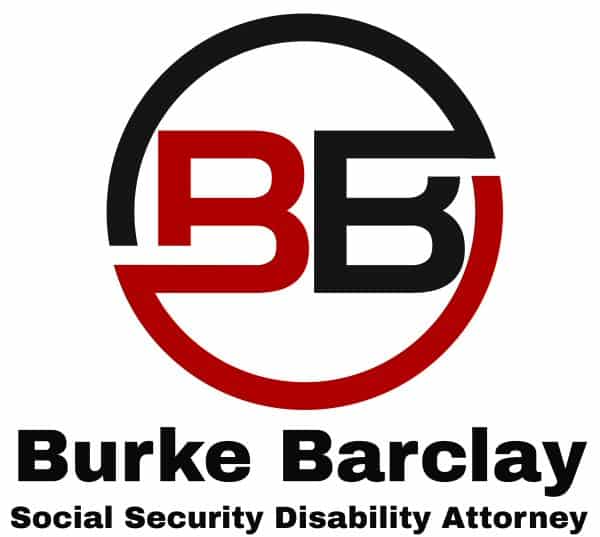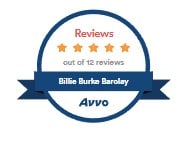What You Need To Do While Waiting For Your SSD Hearing
What You Need To Do While Waiting For Your SSD Hearing
The wait time now for a hearing is over 600 days on average across the United States. What was once about a 12 month wait time, is no longer. Part of this is in due to the amount of people appealing to the hearing level, and part of this is due to the fact the Social Security Administration desperately needs to hire additional Administrative Law Judges to reduce the number of cases backlogged at the hearing level.
So, if this is the case, what can a person do to help themselves when it is finally time to have his or her hearing?
Here’s some ideas:
1. You have to keep seeking treatment.
I tell all my clients this. Remember, the goal at this point is not to cure what condition keeps you from working. After you are awarded benefits and have the opportunity to finally receive treatment, then you can concentrate on becoming cured. While you are waiting for your hearing date, don’t concentrate so much on being well. What you really need to be concentrating on is having enough medical evidence to support your allegation that you are too ill physically and/or mentally to work.
So, how does one do this?
First, when you see your doctor (either individually or at a hospital, clinic, etc.) let him or her know you are filing for benefits. Second, ask your doctor to thoroughly document your condition and how it limits your ability to stand, walk, sit, lift, carry, use your hands, concentrate, make simple decisions for yourself, etc. The more limitations you can document in your medical records the better your chances of success at the hearing level before a judge.
Even if you are only able to receive inexpensive medical care or have to get treatment through the emergency room at your county hospital, at the very least you are creating medical evidence of your condition.
Remember, again, the goal is not so much to get you well, but to really document your conditions that keep you from working.
2. Make sure all your medical records are in your file.
If you have a Social Security disability attorney, he or she will do this for you. But, if you’re one of those persons who likes to go it alone, you can do this yourself. If you are not represented, the Social Security Administration will send you a disc from which you can view all your medical records. I can’t stress this enough, you must make sure your medical records are complete and up to date.
Think of it this way. If you are waiting for a year or more for your hearing, you are going to have to put forth the effort to update your medical records with the hearing office. The Social Security Administration is not going to do it for you at the hearing level. The burden is now on you to keep your medical records current as well as making sure they are complete.
3. Make sure all medical records are at the hearing office 5 business days before your hearing.
Yes, you must have all medical records to the judge within this time frame or he/she has the right to reject them. It is as important as making sure all your medical records are complete and up to date.
4. Prepare questions for the Vocational Expert (VE).
It is very unusual to have a Medical Expert (ME) at your hearing. In fact, if there is an ME present at your hearing, it is very likely you either have some unusual disease the judge is not familiar with, or the judge is using the ME as a way to decide unfavorably against you. So, if there is an ME scheduled for your hearing and you have just a run-of-the-mill common condition, then know the judge likely does not believe you are disabled and is using the expert as a way of deciding against you.
However, almost all cases will have a Vocational Expert (VE) present at the hearing. The practice is so common that it is highly unusual to not have a VE present.
So, what does the VE do?
He or she tells the judge what kind of work you are capable of performing even though you have impairments. It is the goal of the VE to accurately explain to the judge whether a person is capable of working or whether there are no jobs within the national economy a person could perform because of his or her physical or mental limitations.
Now, getting back to how to prepare for the VE.
The judge is going to ask a series of hypothetical questions concerning your impairments. It is your goal to do the same. So, how does one do this?
Look through your medical records very carefully. As you do so, you’ll start to notice limitations you have from your doctors’ diagnosis. Use these limitations as questions to the VE to rule out any kind of work you may be able to perform.
Let’s see an example.
This could be you at your hearing after the judge has asked his or her questions to the VE:
You: “Thank you, Judge, for allowing me a chance to question the VE. Ms. _____________, let’s say, from examining my medical records, I could only walk for a total of 1 hour per day, stand for 2. I can only sit for a total of 4 hours per day, and I would need to take unscheduled breaks throughout the day to lie down.
I would have to lie down for 20 minutes at a time, for a total amount of 1 hour per day. Also, I would be required to take further unscheduled breaks throughout the day in 10 minute intervals to stop what I was doing to relieve my pain. I can only carry 5 pounds at a time and lift 5 pounds at a time as well. I can only use my hands occasionally throughout an 8 hour day, and I need a device like a cane to walk when I need to do so. Would there be any jobs within the national economy I could perform with these limitations?”
The VE would then respond by telling you what jobs you could still perform despite these limitations or would tell you there would be no jobs you could do within the national economy. You just have to make sure your medical records back up these questions. If they do, then the judge will take these limitations into consideration when deciding your case.
5. Perhaps at least think about hiring an experienced Social Security disability attorney.
This blog is not an advertisement to solicit for work. It is intended to help people win their disability case. But, if you have any doubt as to whether you can represent yourself at the hearing level, then you may want to consider hiring counsel to help. An experienced Social Security disability attorney already does the above 4 things when preparing for a case at the hearing level. He or she may be invaluable in that it may be the difference between winning or losing your case. Getting back to the 2 year wait time, it sure would be disappointing to have waited all this time to ultimately have your case decided unfavorably.
6. Finally, research and understand the rules you have to play by the win your case.
Ask yourself a couple of questions: (1) how old am I, (2) what jobs have I done over the last 15 years, (3) what is the level of my education, and (4) how severe is my condition?
Let’s look at each of these individually, to help you further understand:
(1) The older you are the easier it is to win your disability case. The Rules are in place to favor those age 50 and over. If you’re under the age of 50, you are really going to have to show your condition is severe enough to keep your from working at any job, even one that only requires you to sit down throughout the day. So, if you are 50 and over, then know at least the rules are in your favor, and if you are under 50, then know you’re really going to have to work to win your case.
(2) If you have only worked at unskilled labor jobs within the last 15 years, then you don’t have any skills by which you can transfer to some other kind of work. If you have worked at management jobs within that time, realize it is going to be harder to win your case because you may have skills that can transfer to other areas.
(3) How educated are you? If you never graduated from high school, then the Rules are in your favor because the Administration recognizes many jobs need at least a high school education. If you have a college degree or higher, then it is going to be harder to win your case. This is especially true if you received your college education within the last few years.
(4) Now, really ask yourself how severe is your condition. If you can make it through a normal workday, even being uncomfortable, then you may not be able to win your case. If your condition really keeps you from performing any kind of work, then go back and do the above items so you are ready for your hearing when that time comes.
We hope this helps. We represent Claimants throughout Texas and California fighting for their Social Security disability benefits. If you need to chat, please always feel free to contact us at: (888) 780-9125.
You Need an Experienced Social Security Disability Lawyer
We represent claimants fighting for their Social Security disability benefits throughout Texas and California. Contact the Law Office of Burke Barclay for a highly experienced Social Security Disability Lawyer in Dallas, Texas
"Experienced Social Security Disability Lawyer representing clients throughout the United States who either need to initially file for their Social Security disability benefits or have been denied at one of the various stages throughout the process to give them the best chances of success."
Business Address
The Law Office of Burke Barclay
3838 Oak Lawn Ave.
Suite 1000
Dallas, TX 75219
Business Hours
Monday - Friday
8:00 AM - 5:00 PM





